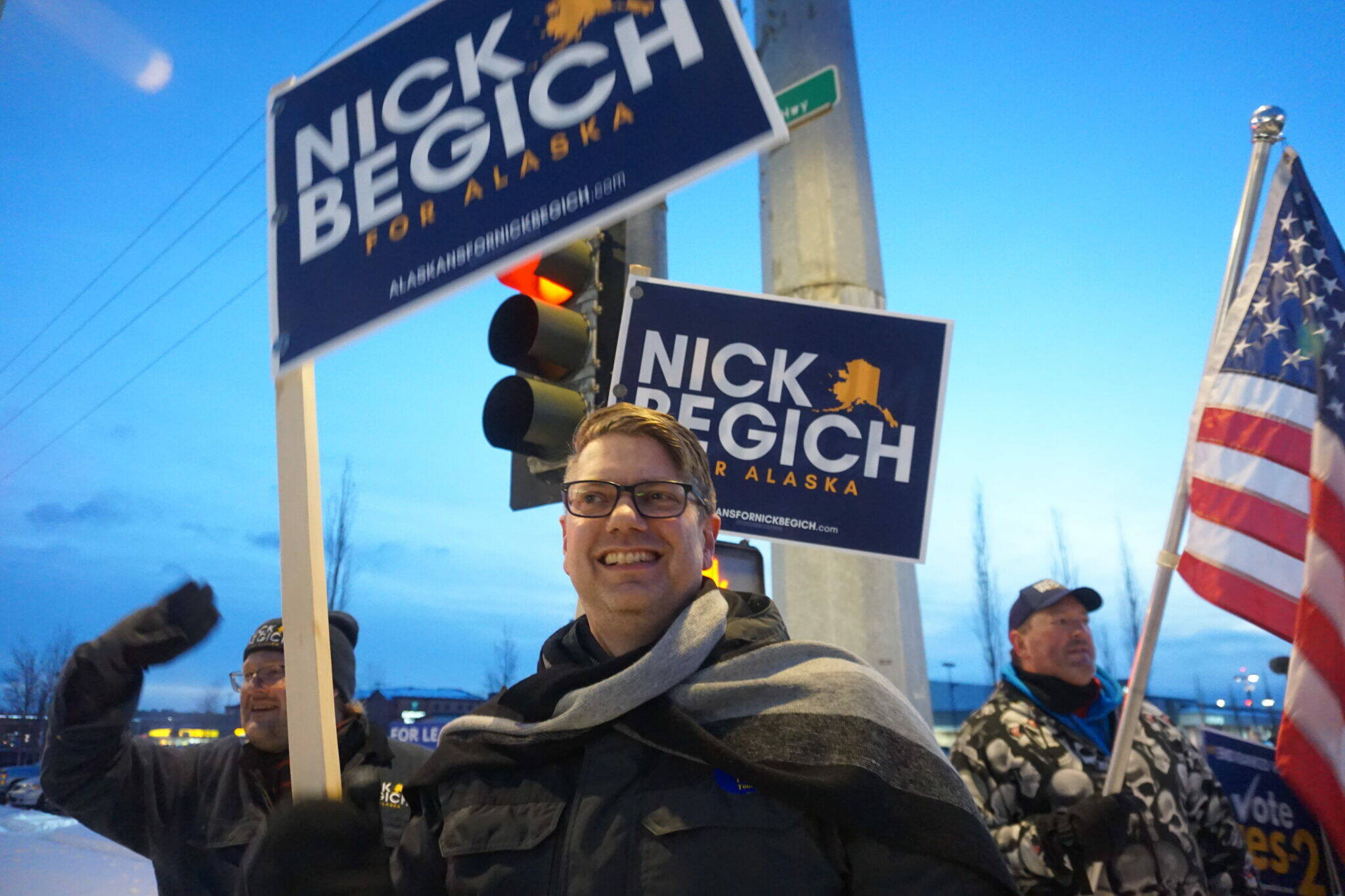The U.S. House of Representatives on Tuesday passed bills that unlock additional land for Alaska Native village corporations and make it easier for disabled Alaska Natives to qualify for federal aid programs.
The bills were the first from Rep. Nick Begich III, R-Alaska, to pass the House this year. Both ideas were inherited from Rep. Mary Peltola, D-Alaska, and Begich reintroduced them on the first day after Congress convened in January. Both passed the House almost unanimously, with bipartisan support.
“We’re the first freshman office to get a bill passed. So that was really exciting,” Begich said by phone.
“They’re commonsense bills, bipartisan bills; they do important things in Alaska, but they shouldn’t be Democrat or Republican,” he said.
If signed into law, HR43 would eliminate the requirement that Alaska Native village corporations hold some land in federal trust, unused, in case a new village corporation is created. That hasn’t happened in more than three decades, and the Alaska Legislature requested last year that Congress repeal the law requiring the trust.
HR42, the other bill, states that certain income shouldn’t count against the federal benefit eligibility limit for Alaska Natives who are “aged, blind, or disabled individual(s).”
Two other Begich bills have yet to advance. One would provide federal land to Southeast Alaska Native village corporations that have no land base, and the other would extend the time that Alaska Native Vietnam War veterans have to select land parcels from the federal government.
As of Monday, Begich has been in Congress for one month. Is he happy with how things have gone in that first month?
“Things are moving at a high velocity, I’d say, but I’m encouraged to see the camaraderie on the Republican side of the aisle as it relates to moving Alaskan priorities forward,” Begich said.
He said he sees a “unique window of opportunity” to open resource development — a term frequently used for mining, drilling, logging and fishing — in Alaska in a way that can’t be reversed by a future presidential administration, ending “the yo-yo effect,” he said.
“The idea that we are working on is to instantiate that right in congressional code, such that the next executive who steps in, who may have a different perspective on Alaska, no longer has the authority to close our state to development,” Begich said.
On Friday, the Alaska Senate is scheduled to vote on a resolution that asks Congress and President Donald Trump to keep the name Denali for North America’s tallest mountain. What does Begich think of that idea?
“I’ve always called the mountain Denali, and I know many Alaskans will,” he said.
By phone, Begich implied that while he hasn’t agreed with everything that’s happened in the first month of his term, he’s generally satisfied.
“We have to look at the glass. Sometimes the glass is 10% full. Sometimes it’s 95% full. Right now, it’s 95% full. And I’m very excited about all the good things that are happening for our state, and I’m looking forward to being a part of that conversation to make sure that Alaska remains part of the national discussion on energy security, mineral security and national security, and that’s my focus,” he said.
• James Brooks is a longtime Alaska reporter, having previously worked at the Anchorage Daily News, Juneau Empire, Kodiak Mirror and Fairbanks Daily News-Miner. This article originally appeared online at alaskabeacon.com. Alaska Beacon, an affiliate of States Newsroom, is an independent, nonpartisan news organization focused on connecting Alaskans to their state government.

